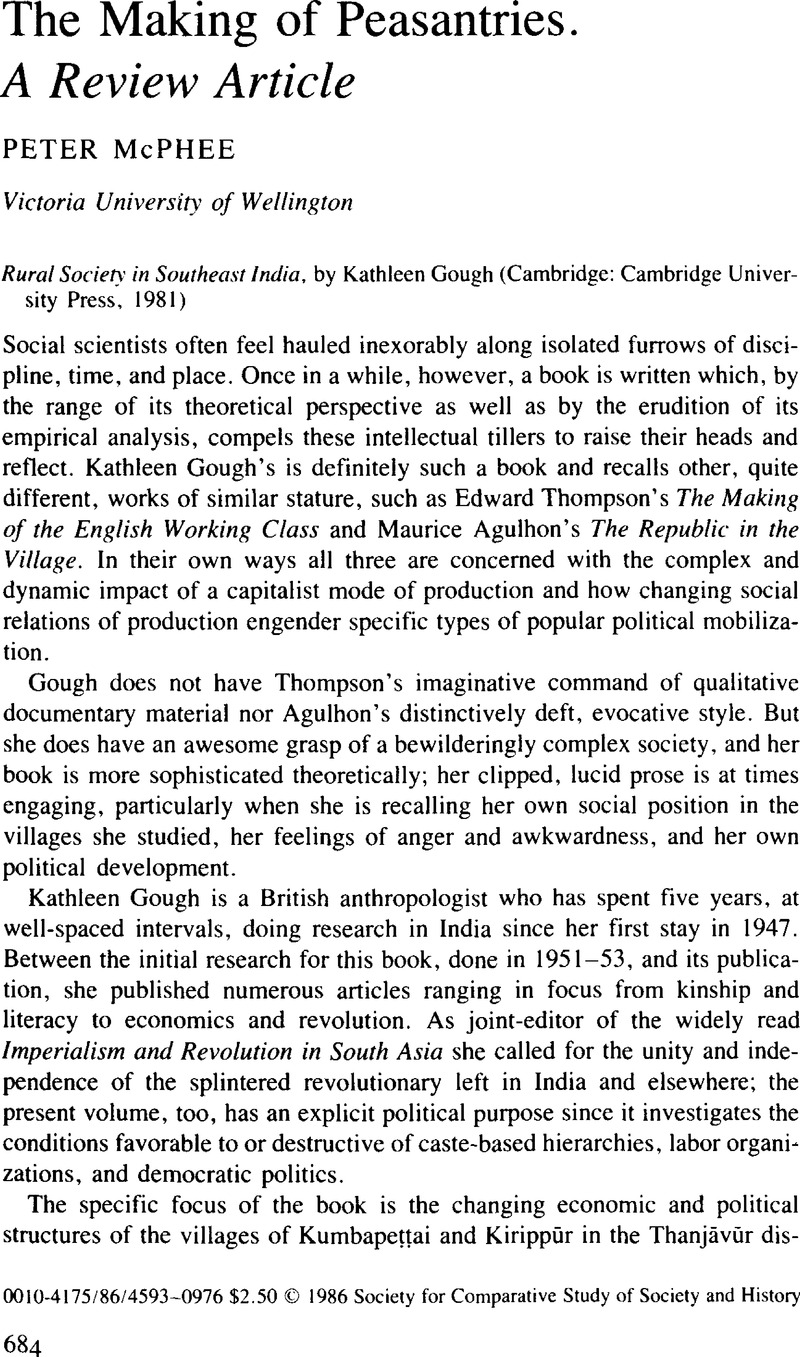No CrossRef data available.
Article contents
The Making of Peasantries. A Review Article
Published online by Cambridge University Press: 03 June 2009
Abstract

- Type
- Capitalist Transformations of Agriculture
- Information
- Copyright
- Copyright © Society for the Comparative Study of Society and History 1986
References
1 “Agrarian Relations in Southeast India, 1750” Review. 2 (Summer 1978), 25.Google Scholar
2 Historians have had little to say about this interplay, and often reiterate the view of political elites that ideology has purely urban roots and is watered down as it is transmitted to the countryside. A brief but thoughtful discussion is in Judt, Tony, Socialism in Provence, 1871–1914 (Cambridge, 1979),Google Scholar ch.10. See also 'Mihailescu, Henri. Theories and Methods in Rural Community Studies (Oxford, 1982). esp. ch. I, 6.Google Scholar
3 H., “African Peasantries: A Theoretical Framework,” Journal of Peasant Studies, 6 (07 1979), 421–43;Google ScholarFriedmann, H., “Simple Commodity Production and Wage Labour in the American Plains,” Journal of Peasant Studies, 6 (10 1978), 71–100.CrossRefGoogle Scholar
4 Such a methodology is both articulated and practised in Isaac, Rhys. The Transformation of Virginia, 1740–1790 (Chapel Hill, North Carolina, 1982),Google Scholar especially “A Discourse on the Method” and Reddy, William M.. “The Textile Trade and the Language of the Crowd at Rouen, 1752” Past and Present, 74 (04 1977), 62–89.CrossRefGoogle Scholar
5 Mintz, S. W. and Wolf, E. R., “An Analysis of Ritual Co-parenthood (Compadrazgo),” Southwestern Journal of Anthropology, 6 (1950), 341–68;CrossRefGoogle ScholarField, D., Rebels in the Name of the Tsar (Boston, 1976).Google Scholar


